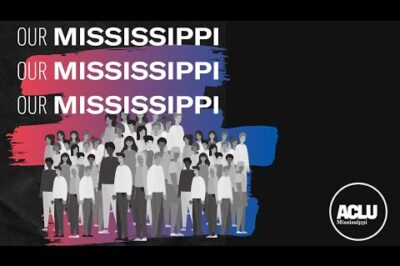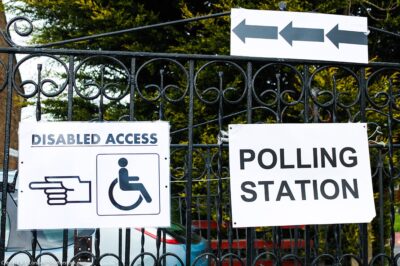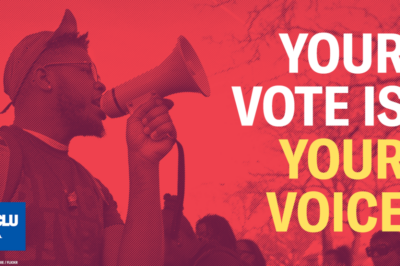Justice Department Sides with ACLU in Wyoming Voting Rights Case
FOR IMMEDIATE RELEASE
CONTACT: media@aclu.org
ACLU Hails Government’s Defense of Landmark Voting Rights Act
ATLANTA, GA – The American Civil Liberties Union today hailed the decision by the federal government to defend the constitutionality of Section 2 of the Voting Rights Act, which prohibits the use of voting practices that dilute minority voting strength. The Justice Department has filed an official notice of intervention on the side of the ACLU in a federal voting rights lawsuit brought on behalf of Native American voters on the Wind River Reservation in Fremont County, Wyoming.
“We wholeheartedly welcome the intervention of the United States in this case because it shows that the federal government stands squarely behind this critically important law,” said Laughlin McDonald, Director of the ACLU Voting Rights Project in Atlanta and lead counsel in the case. “Section 2 of the Voting Rights Act has been an extremely effective remedy to discrimination in voting. It is indefensible that any political jurisdiction would seek to overturn it.”
In the case, Large v. Fremont County, which was filed October 20, 2005, five Native American voters charge that the at-large method of electing Fremont County Commissioners dilutes Native American voting strength in violation of Section 2 and the Constitution.
In responding to the lawsuit, Fremont County officials have not only denied the voters’ claims but have asked the court to rule that Section 2 of the Voting Rights Act is unconstitutional. Section 2 is widely hailed as one of the most effective civil rights laws ever enacted.
Approximately 20 percent of Fremont County residents are Native American, yet prior to the filing of the lawsuit no Native American had ever been elected to the five-member board of commissioners. According to the ACLU, Native American voters in the western United States face the same kind of voting discrimination that has plagued African Americans in the south for generations.
Congress recently renewed and strengthened key expiring provisions of the landmark Voting Rights Act this summer, voting 390-33 in the House and 98-0 in the Senate to extend the law’s temporary provisions another 25 years. President Bush signed the measure into law on July 27, 2006.
According to McDonald, the Supreme Court has already upheld the constitutionality of Section 2 in a 1984 Mississippi voting rights case and applied it most recently in the Texas redistricting case of LULAC v. Perry, in which the Court found that Congressional redistricting in Texas violated the rights of Hispanic voters under the Voting Rights Act.
“I doubt very much that the U.S. Supreme Court would have ruled the way it did in the Texas redistricting case had it thought Section 2 was unconstitutional,” McDonald said. “Nevertheless, we take this challenge seriously and applaud the government for joining us to defend the constitutionality of Section 2, one of the most important provisions of the Voting Rights Act.”
The Wyoming challenge is the second attempt in recent months by local governments to challenge the constitutionality of the Voting Rights Act. The first case was filed in federal court in Washington, D.C., by a small “Municipal Utility District” in Austin, Texas, which is seeking to overturn Section 5 of the Voting Rights Act as unconstitutional. In that case the ACLU and other voting rights groups have intervened on behalf of the federal government, which is also defending the constitutionality of the law.
The ACLU complaint in Large v. Fremont County, No. 2:05-cv-00270-ABJ (D. WY), is online at www.aclu.org/voting-rights/large-v-fremont-county-complaint
The United States’ “Notice of Intervention” is online at www.aclu.org/votingrights/minority/27695lgl20061214.html
Stay Informed
Every month, you'll receive regular roundups of the most important civil rights and civil liberties developments. Remember: a well-informed citizenry is the best defense against tyranny.




